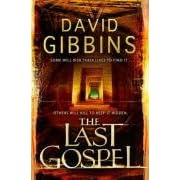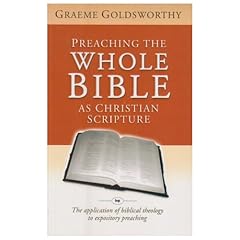Have you ever watched a football match on TV, when you already know the score? You know how it ends up, right from the start. There’s no surprise whenever Healy scores that goal against England... Or watched a film with someone who has seen it before - they know what’s coming and almost ruin it. Or maybe you’ve ruined it for someone else?
I suspect that for most of us here tonight, you know how this ends up before we begin. You’ve heard it so many times that there’s no shock, no surprise, indeed, no relief at verse 11. From the start of the chapter, when you heard God’s command to Abraham, you knew what would happen, so you imagine that Abraham also knows what will happen.
So for a moment, will you delete that file from your memory? Imagine this is the first time you’ve read Genesis 22, and never heard anything of what happens after this point.
The big picture to keep in mind as we read the chapter is the covenant promises of God from right back in Genesis 12. If you’ve been with us on Wednesday nights, you’ll know that God has promised Abraham a great nation (God’s people), in the land that God will give him (God’s place), and that they will be blessed (under God’s rule and blessing). All of this will come through his offspring, but in Genesis 12, he has no children. Oh, and he’s 75 years old.
Following a disastrous attempt to do it himself (through Hagar), Abraham and Sarah give birth to their son, Isaac - twenty-five years later. The promises of God are being fulfilled, they now have the heir, the offspring, the next generation which will lead to the promise being fulfilled - but then comes this command of God. This strange command. Let’s look at verses 1-2. ‘Take your son, your only son Isaac, whom you love, and go to the land of Moriah, and offer him there as a burnt offering on one of the mountains of which I shall tell you.’
There’s no doubt as to who is being referred to here! Four statements, building in intensity, identifying your son, your only son, Isaac, whom you love. Notice also that straight away God is saying what will happen - it’s not go to a specific mountain and then I’ll tell you what to do. It’s go and offer your son, on a mountain I’ll tell you about when you’re there.
Let’s stop for a moment. What is going on? What will happen to God’s covenant? What is God thinking? Remember, Abraham hasn’t read this before, knowing what is going to happen. He is living it out. Remarkably, we see Abraham’s response of faith. We see it in his actions and his words.
Verse 3: ‘So Abraham rose early in the morning...’ and went. No dilly-dallying, or waiting around. Just a swift, obedient going. We’re not told of his thoughts, feelings or emotions. We’re just told that he went. And later, we see his obedience of faith as he (verse 9) builds the altar, lays the wood, binds Isaac, and lifts him on the altar. Abraham’s faith is displayed in his actions. (as James comments in James 2:21-24)
But Abraham’s faith is also displayed in his words. First of all, let’s look at verse 7. Abraham and Isaac are journeying on, having left the two young boys behind. Isaac isn’t slow - he knows there has to be something to sacrifice, but they haven’t brought anything. Where is it? Look at Abraham’s words: ‘God will provide for himself the lamb for a burnt offering, my son.’ God will provide - a statement of faith, developed over those long years of waiting.
Look also at what Abraham said to the two young men who had journeyed with them. Verse 4. They can see away in the distance, the place that God has commanded Abraham to go. Abraham tells them to stay here, while him and Isaac go on. But look closely at what he says: ‘Stay here with the donkey; I and the boy will go over there and worship and come again to you.’
I and the boy will go... and come again to you. Now, some of the commentators try to say that Abraham is just telling a lie so that the young men don’t know what he’s going to do. Or that he’s just saying that I will come again to you. But let’s not fall into that trap. Let’s see instead how Scripture interprets Scripture. Abraham’s words here are words of faith in the God who gives life in place of death.
Hebrews 11:17. ‘By faith Abraham. when he was tested, offered up Isaac, and he who had received the promises was in the act of offering up his only son, of whom it was said, “Through Isaac shall your offspring be named.” He considered that God was able even to raise him from the dead, from which, figuratively speaking, he did receive him back.’
Abraham’s faith here is in the God of resurrection, who overrules to keep his covenant promises, and who is faithful to his promises.
Having forgotten what we know about Genesis 22, let’s revisit that moment then of supreme tension. Isaac is bound on the altar, Abraham has raised the knife above his head, and just then, the angel of the LORD cries out Abraham, Abraham! At that very moment, Abraham’s fear of God is confirmed, and the substitute ram is provided. Isaac goes free, and the ram is slaughtered and offered.
Abraham’s faith in the promise maker and promise keeper is vindicated - and God therefore confirms his covenant with Abraham. Notice the emphasis on Abraham’s obedience (18) and not withholding his son (16), and how this brings forth the covenant blessings - along with the new promise that your offspring will possess the gate of his enemies.
In it’s immediate context, the covenant continues, God’s plan of redemption is rolled into the next generation, and Isaac will take up the mantle of being God’s person under God’s rule, although still not possessing God’s land. But what about the wider context? In this series running up to Easter we’re looking at Christ in all the Scriptures. How can this passage help us understand the cross of Jesus?
Let’s look at those specific promises about Abraham’s offspring as the covenant is confirmed: ‘I will surely bless you, and I will surely multiply your offspring as the stars of heaven and as the sand that is on the seashore. And your offspring shall possess the gate of his enemies, and in your offspring all all the nations of the earth be blessed.’ (Genesis 22:17-18).
Galatians 3:16 helps us to understand that the promised offspring, the one in whom the nations will be blessed is the Lord Jesus. These promises are specifically fulfilled in Jesus and his cross, and seen in the similarities of the offering of Isaac and the cross of Christ.
Just as Abraham offers his beloved son, so too God offers his beloved son as a sacrifice. Just as the cost must have been terrible for Abraham to consider, so also the price of the Lord Jesus was a terrible sacrifice.
Further, the sacrifice of the son confirmed the covenant - for Abraham, it was the sign of his faith in God’s word; in the case of the Lord Jesus, it was the very means of instituting the new covenant, and confirming those promises to Abraham.
Further, the doctrine of substitution is clearly shown here. Isaac is bound on the altar, sentenced to death, and is released, with the ram offered as his substitute. Similarly the Lord Jesus is offered as our substitute - we who deserve death for our sins, and Christ dies in our place, on our behalf. Through Jesus we see the nations being blessed as we come to faith, and enjoy the blessings promised to Abraham.
There’s a difference though - Isaac is saved from death, whereas the Lord Jesus saves through death. Isaac’s resurrection is figurative (as Hebrews 11 comments) whereas Jesus died and was raised to life.
But there is one main similarity I have held until now. It is, I think the main point of the passage, the focus of Abraham’s faith, and the promise that is confirmed in both Genesis 22, and in the rest of the Bible. What was it that Abraham answered Isaac when Isaac asked where the lamb for the sacrifice was? ‘God will provide for himself the lamb for a burnt offering, my son.’ God will provide.
Fast forward to verse 13, and the ram caught in a thicket. The ram is sacrificed, and, as in other episodes, Abraham (like the other patriarchs) names the place where something significant happens. (So, for example, Jacob calls the place where he sees the ladder reaching to heaven ‘Bethel’ - the House of God, or look at Genesis 21:31 - Abraham settles an oath with Abimelech of the Philistines, so the name of the place is called Beersheba ‘well of the oath’).
Here, verse 14: ‘So Abraham called the name of that place “The LORD will provide”; as it is said to this day, “On the mount of the LORD it shall be provided.” Now what’s that bit about on the mount of the Lord? How does this apply to the Lord Jesus and his cross?
Let’s remember where we are. Verse 2: the land of Moriah. 2 Chronicles 3:1 tells us something else that happened on Mount Moriah - Solomon built the house of the LORD there, the temple, on Mount Moriah. So the land of Moriah, one of the mountains there is the place where the Lord will provide, the place of substitution. The very place where the Lord Jesus provides substitution, dying for our sins, giving himself as the Lamb of God so that we might go free, confirming his covenant, giving us life. In his death, Jesus also possesses the gates of his enemies - defeating the devil (cf Colossians 2:15).
As we recall the offering of Isaac, our thoughts naturally focus on Abraham’s offspring, the Lord Jesus and his perfect sacrifice - the Lord will provide, and has provided for us to be partakers of the covenant, the new covenant in his blood. Therefore, let us draw near with faith and celebrate at his table.
This sermon was preached in St Elizabeth's, Dundonald on Sunday evening 28th February 2010, in a new series: Christ in all the Scriptures.






